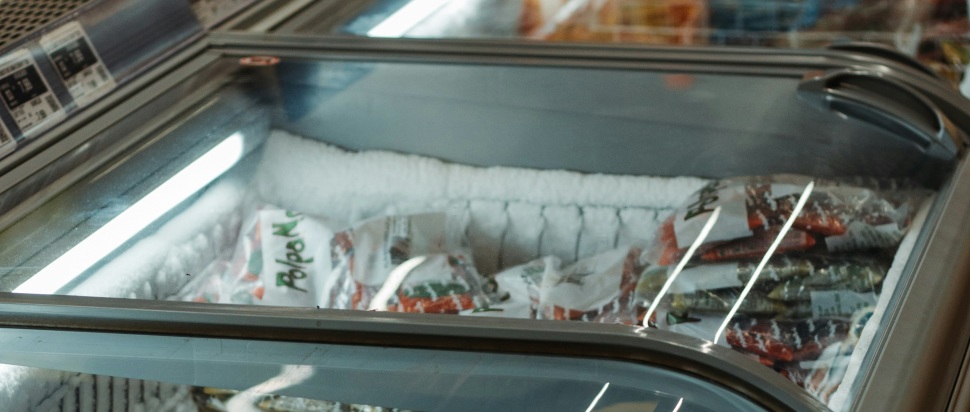Saturday Girl: On part-time nostalgia
In an age of isolation, supermarket check-outs and wiped-clean cafe tables become a site of connection – no matter your age. One writer reflects upon building your sense of self and community through the clocked-in hours of part-time work
On my lunch break, I watched as the teenage girl behind the counter at the cafe shot a brace-filled smile to colleagues, waved goodbye, and walked outside, ducking into the passenger seat of her dad’s car. At the ripe old age of 24, I felt a wave of premature nostalgia wash over me. I was immediately transported back to a time in my life between pocket money and ‘big girl’ wages. A time when, at four o’clock, I’d trade my school uniform for a work uniform and prepare for battle – the days of first jobs and part-time work.
My first job was working in a small, frozen food supermarket. I did my homework at the checkout, and my mum would pick me up and drop me off. It was windowless and often filled with slightly drunken older men stumbling in from the pubs next door, giving it the accidental feeling of a Vegas casino stocked with Fray Bentos.
"Always examine the bank notes," a supervisor warned me gravely on my first shift. "Last week, Jenna took eighty pounds’ worth of notes from the ‘Bank of Smelly Arse.'" I had to stifle a laugh. But this was, in the eyes of the young manager, a very serious forgery threat. From then on, I held every note to the sky looking for obscenities.
I left after a short period to pursue greater things – an even bigger, more fluorescent, windowless supermarket around the corner. It became my official part-time gig, I worked there for years. In many ways, it was where I grew up. I mopped up spilled milk while discussing my prom dress with a colleague who asked for wedding dress opinions in return. I cried when I was dumped for the first time, slumped in the back of the bakery section, comforted by the 70 year-old cake decorator behind a sea of Hovis. I celebrated with friends at the pizza counter when I got an offer for university, tossing my hair net into the air like an American graduation cap.
I poured my little earnings into a sixth year holiday, dig money, or work nights out that we’d spend all shift discussing, before nursing communal headaches the next day at the checkout. We’d scowl at the customers who bought hot food before midday, the smell of rotisserie chicken offensive to our hinging state, and praised the part-timer who discovered that the scanner’s bleeps could be turned down. Of course, I envied my jobless wealthy peers, attending school and university extracurriculars without the call of duty ever-ringing. Meanwhile, I had dodgy managers and long shifts. And yet, it was a golden time, before the true pressures of adulthood, soundtracked by the hum of industrial refrigerators.
I left the cafe feeling weirdly emotional. I spoke to my friend Jas to ask if she felt the same. Had I romanticised my first job? Jas and I grew up together. As kids, we solemnly agreed to become models-slash-international-spies. But over the years we lost sight of the dream. As young adults, she worked in a sports store across from me in the town’s retail park. And, like me, she’s now working in her first full-time office job.
"I miss the feeling of being carefree," she began. "I think it taught me how to work with people of different ages, backgrounds, opinions, and learn from them. It also gave me a new appreciation for people working in retail and hospitality and what they need to put up with from some customers."
The customers – possibly the most challenging part of any retail job. We swapped some horror stories and laughed before she gazed off. "Funnily enough, the customers that stick with me aren’t the angry or arrogant people. It was the person going through personal issues and sharing it all with me," she said. "It made me realise how many lonely people there are out there – that they would rather vent to a 17-year-old stranger folding their clothes."
She was right. I thought of all those people – colleagues and customers – who shared their stories with me, a spotty teenager with a name badge, balancing my own grief in the wake of losing my dad and navigating life’s complexities. For some people, talking to store workers like me was the only interaction they’d have that day. Or that week. The bonds built transcended age.
I thought of the woman whose daughter was in debt from funding a series of failed IVF attempts, and later brought her grandchild to meet the staff. The ex-miner, who’d been working in the store since the decimation of the former industrial town. And the old man who came in to buy a newspaper and talk to shelf-stackers every Saturday until he passed away.
Some of my friends made careers out of the job, flourishing into full-time, but for others like myself, there was a melancholy understanding that it was only temporary. They were heading elsewhere. Maybe, one day, they would be back. Maybe not. "Ships that pass in the night," as my gran would say.
It left something profound with me – a lesson in community. Supporting one another in an age of isolation. It was life, in all its glory, in every aisle. And it was the people that made it worth it.
